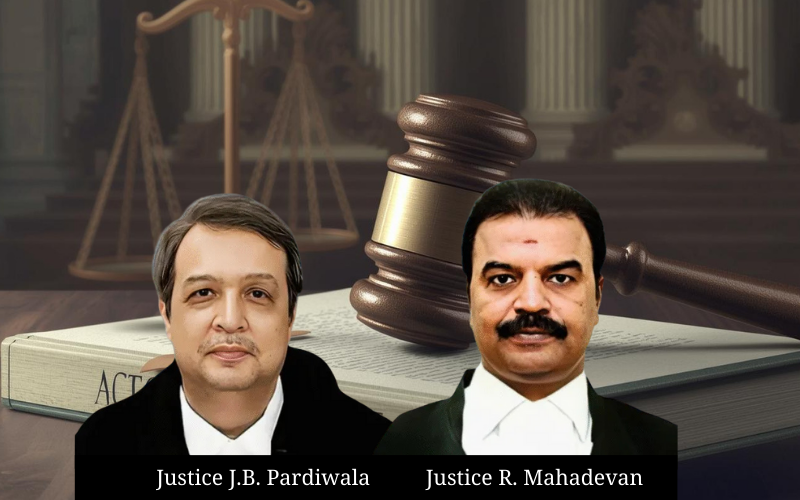Condonation of delay merely to protect public interest is not a valid - Public interest is better served by enforcing limitation strictly to promote accountability and timely action
Date: September 13, 2025
In a landmark judgment delivered on September 12, 2025, the Supreme Court of India, presided over by Justices J.B. Pardiwala and R. Mahadevan, has critically examined the principles governing the condonation of delay under Section 5 of the Limitation Act, 1963, especially focusing on appeals filed by government entities.
Background of the Case
The dispute involved a parcel of land originally owned by the appellant's father. After his demise, partition suits and subsequent litigation ensued involving the appellant and the Karnataka Housing Board (KHB). Following a compromise decree in 1989, the appellant became the absolute owner of the land in question. However, possession was not restored, prompting the appellant to file a suit for declaration of title and possession.
Although the first appellate court decreed in favor of the appellant, it granted compensation instead of possession due to substantial construction by KHB. The respondent housing corporation delayed filing a second appeal against this judgment by nearly 11 years (3966 days). The High Court condoned this delay, prompting the present appeal before the Supreme Court challenging the legality of such condonation.
Key Issues Addressed
1. Interpretation of "Within Such Period" in Section 5 of the Limitation Act:
The Court clarified that the expression "within such period" encompasses both the original statutory period of limitation and the extended period during which delay has occurred. Therefore, a party seeking condonation must explain the delay covering the entire duration from when the limitation period commenced up to the actual filing date.
2. Definition of "Sufficient Cause":
The Court emphasized that "sufficient cause" is an elastic concept to be interpreted liberally to advance substantial justice, but it is not a license for negligence or inaction. Mere administrative lapses, lethargy, or lack of bona fides do not constitute sufficient cause. The explanation must be bona fide, reasonable, and demonstrate due diligence.
3. Discretionary Power of Courts and Interference on Appeal:
The Supreme Court reiterated that the exercise of discretion by lower courts in condoning delay should not be interfered with unless it is arbitrary, capricious, or based on no evidence. However, when there is a change in law or the exercise of discretion is manifestly erroneous, appellate courts may intervene.
4. Treatment of Delay by State or Governmental Bodies:
The Court addressed the long-standing practice of granting leniency to government bodies due to bureaucratic delays. It underscored a significant shift post the Postmaster General v. Living Media India Ltd. (2012) judgment, ruling that the law of limitation binds the State no less than private litigants. The State is expected to act with vigilance and diligence, and habitual reliance on bureaucratic inefficiency as a ground for delay is no longer acceptable.
5. Public Interest vs. Procedural Discipline:
The judgment clarified that public interest does not justify condoning delay caused by governmental negligence. Instead, enforcing limitation periods promotes responsible governance, legal certainty, and protects litigants from indefinite litigation.
Supreme Court’s Findings
- The High Court erred in condoning the inordinate delay of 3966 days caused by negligence and administrative lethargy of KHB officials.
- Mere blaming delinquent officers after delay is discovered does not absolve the government entity. Prompt remedial action should have been taken earlier.
- The High Court wrongly delved into the merits of the appeal while deciding condonation, which is impermissible.
- The principle of equality before law mandates that government entities are not entitled to preferential treatment regarding limitation.
- Delay condonation is an exception, not a rule, and courts should not condone delay mechanically or lightly.
- The appeal is allowed, the High Court’s order condoning delay is set aside, and costs are imposed on the Karnataka Housing Board.
- The executing court is directed to conclude execution proceedings within two months.
Significance of the Judgment
This judgment serves as a stern reminder to government departments and public authorities that bureaucratic inefficiency and procedural delays will no longer be tolerated as excuses for missing limitation deadlines. The courts will demand bona fide, reasonable, and diligent conduct from all litigants, regardless of their identity.
By emphasizing the need to balance justice with the discipline of limitation laws, the Supreme Court has reinforced the principles of finality, accountability, and the rule of law. The ruling also warns against the practice of “certificate cases” - filing delayed appeals merely as a formality to protect erring officials without genuine justification.
Conclusion
The Supreme Court’s ruling marks a pivotal moment in limitation jurisprudence, particularly in the context of government litigants. It unequivocally mandates timely action, due diligence, and accountability from State entities in pursuing legal remedies, thereby safeguarding public interest and ensuring justice is not undermined by avoidable delays.
Shivamma (Dead) v. Karnataka Housing Board, (SC) : Law Finder Doc Id # 2777666




